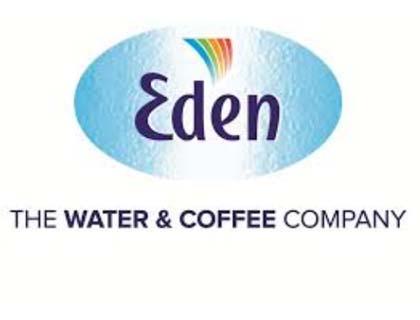The Ultimate Employee Motivation Guide: Chapter 6
All businesses want to maximise productivity and output - at the end of the day, it’s the all-important profit margin that counts. However, results depend on an efficient and motivated team – after all, a business’s output is generated by its employees. The question raised is how to motivate your team to get these results. To some extent, it’s understandable that some employees take on a sedated approach at work, especially in industries involving repetitive tasks. It’s up to management to keep their employees in a proactive, motivated state – a business that just ‘ticks over’ isn’t going to see any gains. A proactive team is key to growth and maximising output. Featured Expert: “We have regular brainstorming sessions with the team, which means everyone has a chance to be creative and get involved in big projects. This is a great way to get a team excited about our company projects and goals. Having a regular time and place to contribute your ideas really encourages the team to aim higher, think creatively, and work more efficiently.” - Ariella Coombs - managing director of Careerealism
Rewards Based Culture
A positive approach to managing a team will always win over negativity. Strong performance should be rewarded, and any failures should be met with constructive discussions, focused on moving forward. It’s essential that managers set an example by maintaining a professional and positive approach, inspiring their employees to follow their lead. There have been numerous cases of team failures due to poor attitudes, unprofessional behaviour and bullying in the workplace. It’s inevitable that teamwork may cause friction between employees, but maintaining a positive, ‘can-do’ attitude is guaranteed to minimise any bumps in the road. Negative feedback can make teams feel lost and without an achievable goal. Instead, a constructive approach should be taken - giving employees a chance to get back on track when things go wrong. Take Action: Introduce an incentive scheme to reward top performing employees on a monthly basis, maintaining long-term team performance.  Rewarding a job well done has been proven to have an uplifting effect on businesses, who will see spikes in productivity when incentives and reward schemes are introduced. Managers need to set specific yet realistic goals, giving employees a chance to shine, knowing that they can achieve these through hard work.
Rewarding a job well done has been proven to have an uplifting effect on businesses, who will see spikes in productivity when incentives and reward schemes are introduced. Managers need to set specific yet realistic goals, giving employees a chance to shine, knowing that they can achieve these through hard work.
Dish Out Responsibility
Trust is a major issue when it comes to team work – employees want to feel a sense of purpose in their job, which they cannot achieve if they don’t believe their managers trust them to do their job effectively. By giving employees the chance to take on additional responsibilities, not only are you acknowledging their abilities, but the added pressure is sometimes all that’s needed to get a team working efficiently. Take Action: Give key employees an area of responsibility to manage and report back on – this could be taking over a client or monitoring the performance of a specific project. Although major business decisions will always remain the responsibility of management, smaller projects and decisions can easily be delegated, empowering your employees. Featured Expert: “For my own team, I’ve always made employee motivation about the individual. I like to encourage each person to really "own" their area of expertise, their projects, their space - we try to make them feel and act like they really are the “CEO” of whatever project they are working on or whatever goal they are trying to reach.” - Chad Halvorson - CEO of ThisCLICKS, makers of When I Work
Clear Progression Paths
Providing employees with additional responsibilities not only motivates them by setting a goal, but also gives them a chance to prove their managerial potential. The ability to progress in a role is one of the top concerns identified as being important to employees in the workplace. Without the chance to progress, it can be hard for an employee to remain proactive at work, as there is no opportunity to develop their career. All businesses want to grow and progress, therefore it’s essential that there is room for growth with employees – hard work isn’t sustainable unless an employee is rewarded for it appropriately. Businesses should ensure that there is a transparent development scheme in the workplace, with a clear progression path, achievable through good performance.
Motivational Teamwork Goals
Richard Clark, Professor of Education Psychology at the University of Southern California, has identified five key motivational goals when it comes to teamwork:
- Foster mutual respect for the expertise of all team members.
- Help weaker team members believe that their effort is vital to team success.
- Support a shared belief in the cooperative capabilities of the team.
- Hold individual team members accountable for their contributions to the team effort.
- Direct the team’s competitive spirit outside of the organisation - competition between colleagues working together can be destructive.







 Rewarding a job well done has been proven to have an uplifting effect on businesses, who will see spikes in productivity when incentives and reward schemes are introduced. Managers need to set specific yet realistic goals, giving employees a chance to shine, knowing that they can achieve these through hard work.
Rewarding a job well done has been proven to have an uplifting effect on businesses, who will see spikes in productivity when incentives and reward schemes are introduced. Managers need to set specific yet realistic goals, giving employees a chance to shine, knowing that they can achieve these through hard work. 